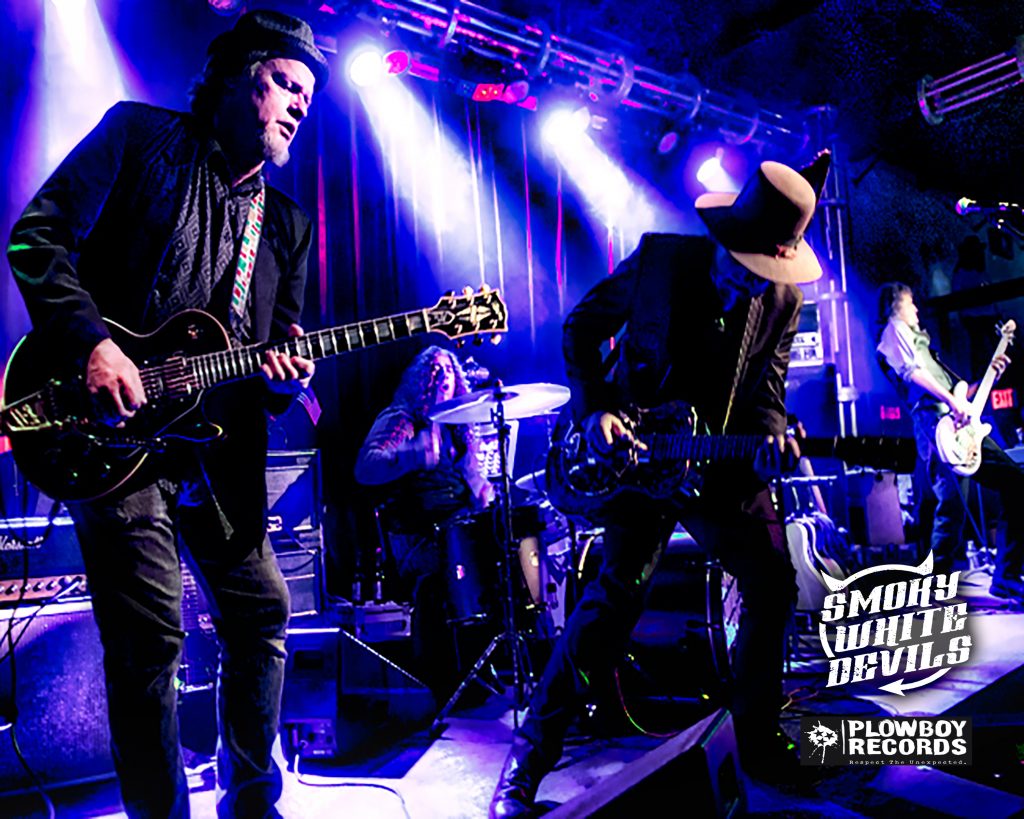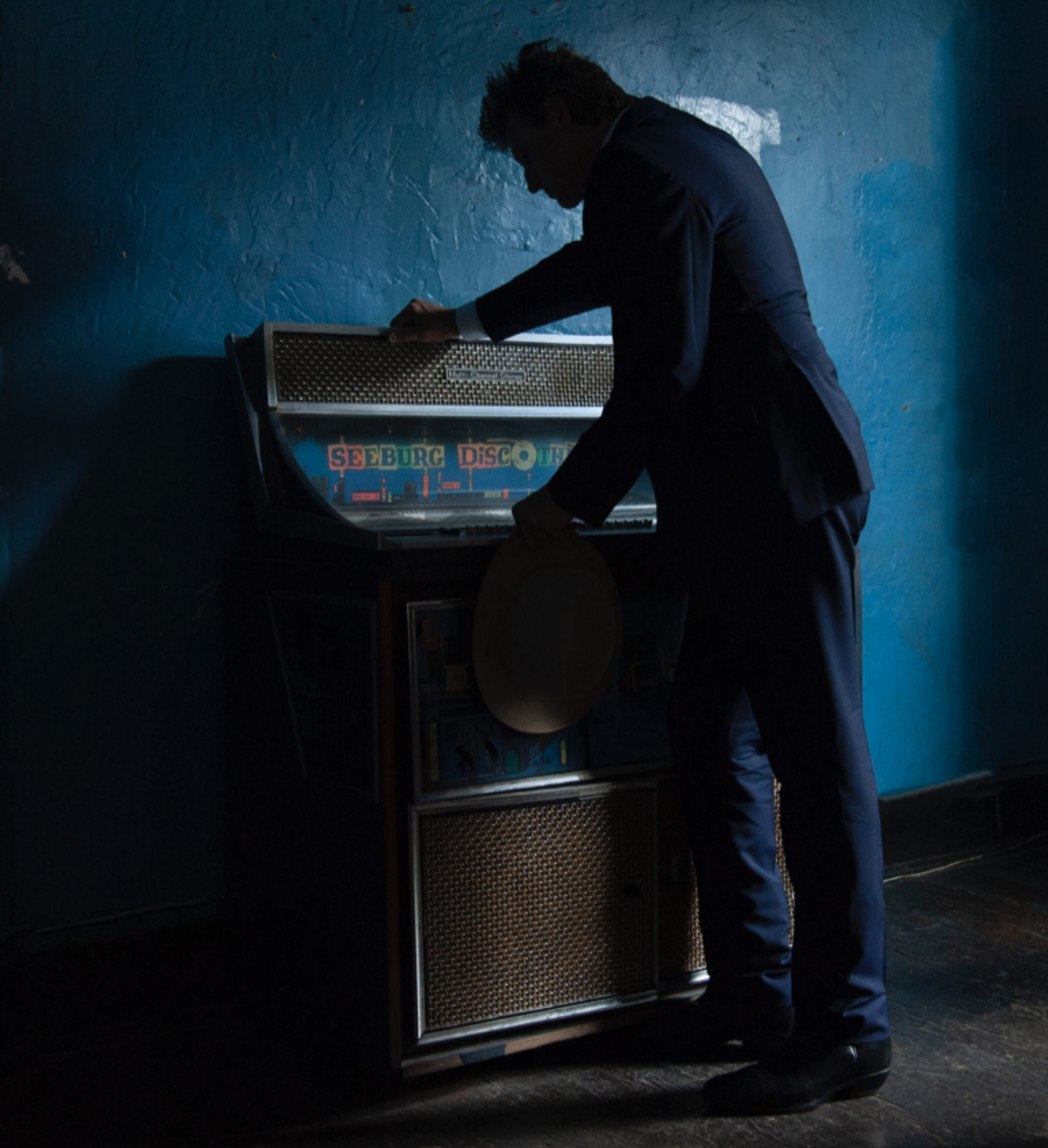
NASHVILLE ROOTS ROCK SUPERGROUP SMOKY WHITE DEVILS RELEASE THEIR DEBUT ALBUM, NEW OLD STOCK, ON PLOWBOY RECORDS
Veteran players whose credits include Dolly Parton, the Mavericks, the Farm Bureau, Trailer Choir and Raging Fire band together to forge a flame-breathing update on rock, boogie, blues, and other sounds of the South—and take it on the road.
NASHVILLE, TN — With a sound stronger than East Tennessee moonshine, Smoky White Devils have arrived … with a debut album called New Old Stock that packs six-string swagger, mountain-country soul, expert songcraft and mule-driving rhythms into 10 original tunes. New Old Stock is available now via Plowboy Records, as the band burns up the highways playing select headlining dates and opening for the likes of the Kentucky Headhunters and Richard Lloyd.
Smoky White Devils unites four pedigreed players: singer-guitarists Richie Owens and Nick Kane, bassist John Reed and drummer Michael “Fergie” Ferguson. And the title New Old Stock—a term used in the musical instrument business for pristine, rediscovered treasures, like vintage tubes and transformers, from earlier eras—alludes both to their experience and to the fresh unfettered energy they bring to their music and live concerts.
“The beautiful thing about this band is it’s all been organic,” says Owens, whose credentials include bandleader, songwriter, guitarist, instrument maker and producer. “We’ve shared the stage with each other over the years in various combinations, but when we got together two years ago just because we all thought it might be fun to play together … it just exploded. Ideas for songs and riffs just started pouring out. We had a sound that coalesced around Nick’s and my guitars and songs naturally. And with all of us being more seasoned and wily, we know how to get right to the heart of a song or a sound in the studio or onstage, and really make it count.”
New Old Stock opens with “Hoppin’ John,” a song that plants Smoky White Devils’ flag via Kane’s big, bawdy roadhouse riff and Owens’ tale of a larger-than-life figure that’s a composite of some of the wildmen from his native East Tennessee hills—a place bookended by bootleggers and preachers, with musicians falling

